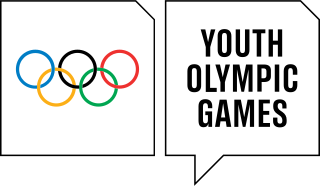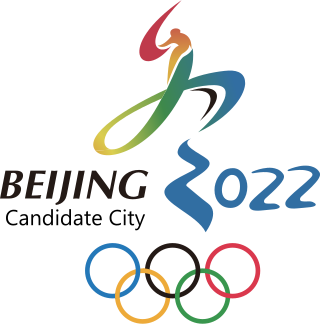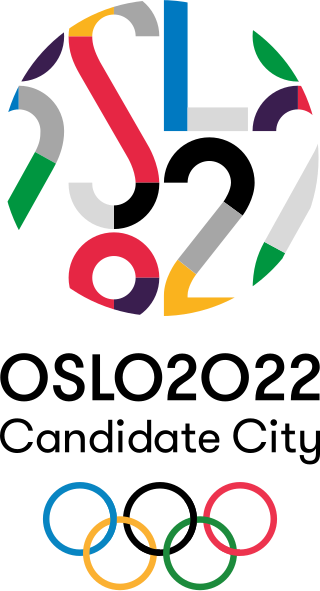
The 1964 Winter Olympics, officially known as the IX Olympic Winter Games and commonly known as Innsbruck 1964, were a winter multi-sport event which was celebrated in Innsbruck, Austria, from January 29 to February 9, 1964. The city was already an Olympic candidate, unsuccessfully bidding to host the 1960 Games. Innsbruck won the 1964 Games bid, defeating the cities of Calgary in Canada and Lahti in Finland. The sports venues, many of which were built for the Games, were located within a radius of 20 km (12 mi) around Innsbruck. The Games included 1,091 athletes from 36 nations, which was a record for the Winter Games at the time. Athletes participated in six sports and ten disciplines which bring together a total of thirty-four official events, seven more than the 1960 Winter Olympic Games. The luge made its debut on the Olympic program. Three Asian nations made their Winter Games debut: North Korea, India and Mongolia.

The 1976 Winter Olympics, officially known as the XII Olympic Winter Games and commonly known as Innsbruck 1976, were a winter multi-sport event celebrated in Innsbruck, Austria, from February 4 to 15, 1976. The games were awarded to Innsbruck after Denver, the original host city, withdrew in 1972. This was the second time the Tyrolean capital had hosted the Winter Olympics, having first done so in 1964.

Three cities made the shortlist with their bids to host the 2010 Winter Olympics and Paralympics, which were awarded to Vancouver, British Columbia, Canada, on July 2, 2003. The other shortlisted cities were Pyeongchang and Salzburg. Although Bern was originally shortlisted along with Vancouver, Pyeongchang and Salzburg, a referendum held in September 2002 revealed that a majority of the citizens of Bern did not support pursuing the candidacy. There were four other cities vying for the hosting honour, that had been dropped by the International Olympic Committee: Andorra la Vella, Harbin, Jaca and Sarajevo.
Seven applicant cities presented bids to host the 2014 Winter Olympics and Paralympics to the International Olympic Committee (IOC). The IOC Executive Board shortlisted three cities—Sochi, Russia; Salzburg, Austria; and Pyeongchang, South Korea—with Sochi winning the IOC's July 2007 final vote.

The Youth Olympic Games (YOG) is an international multi-sport event for athletes between 15 and 18 years old, organized by the International Olympic Committee. The games are held every four years in staggered summer and winter events consistent with the current Olympic Games format, though in reverse order with the Olympic Winter Games held in leap years instead of the Games of the Olympiad. The first summer version was held in Singapore from 14 to 26 August 2010 while the first winter version was held in Innsbruck, Austria from 13 to 22 January 2012.

The bidding for the 2010 Youth Olympics Games began in August 2007, to which nine cities presented their candidature files. In the competition to host the inaugural Youth Olympic Games in 2010, the list was shortened to five in November 2007. The list was further shortened to two in January 2008—Moscow and Singapore.

The 2012 Winter Youth Olympic Games, officially known as the I Winter Youth Olympic Games (YOG), were an international multi-sport event for youths that took place in Innsbruck, Austria, on 13–22 January 2012. They were the inaugural Winter Youth Olympics, a major sports and cultural festival celebrated in the tradition of the Olympic Games. Approximately 1100 athletes from 70 countries competed. The decision for Innsbruck to host the Games was announced on 12 December 2008 after mail voting by 105 International Olympic Committee (IOC) members. Innsbruck is the first city to host three winter Olympic events, having previously hosted the 1964 Winter Olympics and the 1976 Winter Olympics.

The 2016 Winter Youth Olympics, officially known as the II Winter Youth Olympic Games, took place in and around Lillehammer, Norway, between 12 February and 21 February 2016. They were the fourth Youth Olympic Games and the second winter edition. Lillehammer was awarded the games on 7 December 2011 as the only candidate. The games reused venues from the 1994 Winter Olympics; this made Lillehammer the first city to host both regular and Youth Olympics. In addition to Lillehammer, sports were contested in Hamar, Gjøvik and Øyer.

Three cities applied with bids to host the 2018 Winter Olympics and Paralympics in October 2009. The International Olympic Committee, under the leadership of Jacques Rogge, received three bids on October 15, 2009. The cities of Annecy, France, in the French Alps, Munich, Germany, and Pyeongchang, South Korea, a two-time previous bidder, competed for the hosting rights to the event. This was the lowest number of bidding cities since the 1988 Summer Olympics, coincidentally also won by South Korea. The winning bid was announced on July 6, 2011, at the 123rd IOC Session in Durban, South Africa by IOC President Jacques Rogge at 5.22 pm local time Pyeongchang beat Munich and Annecy in the first round of votes with 63 of the 95 total votes.

For the 1976 Winter Olympics in Innsbruck, Austria, a total of eight sports venues were used. The games were originally awarded to Denver, Colorado in the United States in 1970, but they withdrew in the wake of Colorado residents voting against it for environmental and cost reasons in November 1972. This led to the International Olympic Committee opening up the bids for the games again, eventually awarding them to Innsbruck in February 1973. The Austrian city, having hosted the Winter Olympics in 1964, was in the process of having the venues used for those Games before Denver's with clear cutting of the alpine skiing venues, lessening of the amount of cross-country skiing routes, upgrading the ski jumps, adding lighting in the indoor sports arena to accommodate color television, and the construction of a combination bobsleigh and luge track. After the 1976 Games, the venues have remained in use, hosting events in Nordic skiing and the sliding sports. They hosted some of the events for the Winter Universiade in 2005 and seven of the eight venues served as host for the first Winter Youth Olympic Games in 2012.
Oslo–Lillehammer 2018 was a proposal for Oslo and Lillehammer, Norway, to bid to host the 2018 Winter Olympics. Along with the Trondheim and Tromsø bids, it was one of three options for the Norwegian Olympic and Paralympic Committee and Confederation of Sports (NIF), who ultimately chose to not bid for the games. Oslo announced the bid in September 2006, and the official proposal report was published in February 2007.

Annecy 2018 was an unsuccessful bid by Annecy, France, for the 2018 Winter Olympics.

Lillehammer 2016 was the successful bid by the city of Lillehammer and the Norwegian Olympic and Paralympic Committee and Confederation of Sports for the 2016 Winter Youth Olympics. Lillehammer was the only bidder for the games and were awarded the games on December 7, 2011.

The 2016 Winter Youth Olympics in and around Lillehammer, Norway, between 12 February and 21 February 2016. Nine competition and twelve non-competition venues are to be used; all except the Youth Olympic Village in Lillehammer and a training ice rink being are existing venues. All the competition venues and some of the non-competition venues were built ahead of the 1994 Winter Olympics. The games be held in four municipalities: Lillehammer, Hamar, Gjøvik and Øyer.

A total of six bids were initially submitted for the 2022 Winter Olympics. Four of the bids were subsequently withdrawn by 1 October 2014, citing either the high costs of hosting the Games or the lack of local support, leaving Almaty, Kazakhstan and Beijing, China as the only two remaining candidate cities. Beijing was then elected as the host city at the 128th IOC Session in Kuala Lumpur, Malaysia, on 31 July 2015.

Beijing 2022 was a successful bid by Beijing, China and the Chinese Olympic Committee for the 2022 Winter Olympics. The IOC selected the host city for the 2022 Winter Olympics at the 128th IOC Session in Kuala Lumpur, Malaysia on July 31, 2015, which Beijing won.

Oslo 2022 Winter Olympics was a campaign by the private organization Norwegian Olympic and Paralympic Committee and Confederation of Sports for the right to host the 2022 Winter Olympics in Oslo, although in Norway it was primarily viewed as an application by the Olympic movement for government funding of an Olympic Games that would ultimately be decided by the Norwegian Parliament. The Olympic organisations had already indicated a strong desire that Norway would host the games and provide the necessary funding. Oslo was described as the clear favourite to host the games in international media and was widely expected to be awarded the games, provided that the Norwegian Parliament granted the necessary funding.
Stockholm 2022 was a bid by Stockholm with Åre and the Swedish Olympic Committee for the 2022 Winter Olympics. The bid was announced at November 11, 2013. The IOC will select the host city for the 2022 Winter Olympics at the 127th IOC Session in Kuala Lumpur, Malaysia on July 31, 2015. Stockholm previously hosted the 1912 Summer Olympics and hosted equestrian events at the 1956 Summer Olympics in Melbourne.

A total of seven bids were initially submitted for the 2026 Winter Olympics. Four of the bids were subsequently withdrawn after entering the candidature stage, leaving Milan–Cortina d'Ampezzo, Italy and Stockholm–Åre, Sweden as the only two remaining candidate bids. Milan–Cortina d'Ampezzo was elected as the host city at the 134th IOC Session in Lausanne, Switzerland, on 24 June 2019.
There were a total of four bids which were initially submitted for the 2024 Winter Youth Olympics. On 8 January 2020, the IOC EB agreed to award the 2024 Winter Youth Olympics to the province of Gangwon.





















